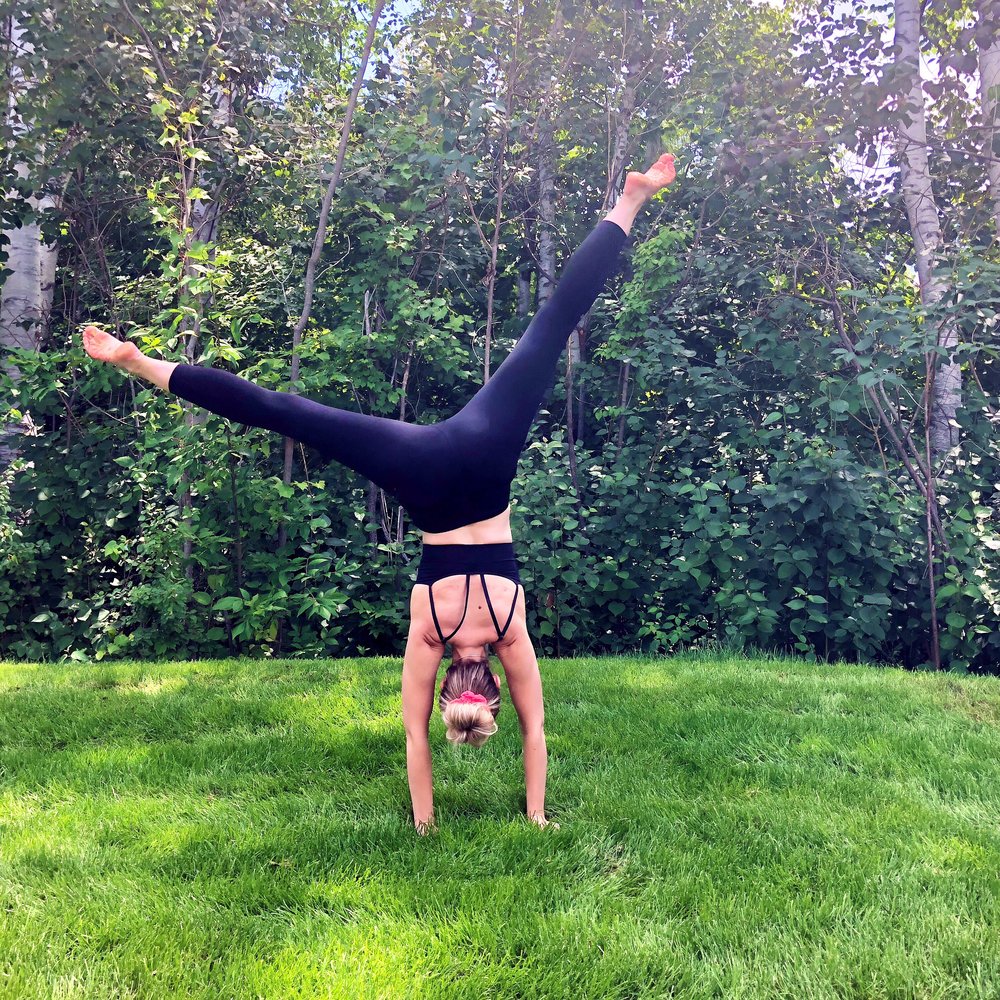Top 10 Pieces of Advice For The New Grad
By: Emma Jack BSc (HKin), MSc(PT), MClSc(Manip. Therapy), FCAMPT, Sport Dip. ∙ Estimated reading time: 8 minutes
By: Emma Jack BSc (HKin), MSc(PT), MClSc(Manip. Therapy), FCAMPT, Sport Dip. ∙ Estimated reading time: 8 minutes
Well, my friends, after a little summer blog-cation I am back!
Fall is just around the corner and I must admit that it is one of my favourite seasons - I love the cooler mornings, crisp leaves and of course everything pumpkin spice.
I was saying to a patient last week that what I love the most about fall is that it is like a second New Year! To me, September and back-to-school time is all about setting our sights on new goals and ventures and getting back down to business after a little extra summer playtime.

Fall also brings with it a brand new group of fresh-faced physiotherapists who are about to embark on their careers. Finally, after at least 6 years (6 years!) of post-secondary education, these students are finally making the transition into their professional lives.
I remember the feeling like it was yesterday. I was excited, energetic and motivated while simultaneously feeling exhausted, scared, a little bit nauseous and like the biggest imposter on the planet.
Truth is, no amount of formal education can truly prepare you for the reality of professional practice and just like any life transition, this transition can be challenging and test what you are made of.
Though written from my perspective as a physiotherapist, I am sure that much of this advice would apply to other professions outside the physio world too. So without further ado, whether a new graduate or long-time professional, here is my advice.

1. Stay a Student
Just when you thought you were done! I recognize that this is a bit of a bummer but it's the cold hard truth.
Those who are successful stay curious and are life-long learners.
Sure there aren't assignments or grades anymore but now the effort you put into looking up information, reading current research and taking continuing education all pays dividends when it comes to your reputation and success.
2. Don't be Shy, NETWORK
Now more than ever it is so easy to network.
At the risk of sounding old, Instagram, Facebook, and Twitter were not popular at all when I graduated and certainly were not channels for professional networking.
Today, I find it to be one of the best ways to be able to interact, connect and learn from others in our field. Of course, don't just rely on social media, I think it is equally important to go out and actually meet people!
Not just PTs but other health care practitioners and people in your community. If people know you, they are more likely to refer to you. Trust me, some of my strongest referral sources are people I have just put extra effort into meeting face-to-face. Set up a coffee date, video chat, whatever you have to do- just stay connected!
3. Have a Mentor, Be a Mentor
No matter what there is always someone ahead of you and always someone behind you.
Finding a good mentor that aligns with your values, your why and your goals is imperative. I honestly don't know where I would be today without some amazing individuals who have nurtured me.
In this day and age (again, I'm feeling old), your mentor does not need to work in your clinic, live in your city or even live in your country! You have the ability to be a bit more picky and find someone who meets your needs. Cold call, send some emails and DM's- you'd be surprised what might happen.
“True leaders don’t create followers, they create more leaders.”
At the same time, recognize that you can also fill the role of mentor now. As much as it seems crazy (you're a new grad!) giving advice to those coming up behind you in PT school is not only valued but good practice.
Whether it is checking in via email or sharing key resources, advice or experiences you have a lot to offer! Consider staying in touch with those in the years below you as one day they will be fellow colleagues.
I think it is important to take on both roles here- being a mentee makes you a better mentor and being a mentor makes you a better mentee. Though maybe not, in the same way, you will certainly learn from both.
4. Always Be a Bit of a Skeptic
As much as social media can be great, don't take anything at face value. You are in charge of your own practice, opinions, and ideas. Just because someone has half a million Instagram followers or is a well-published author does not mean you should adopt their methods and opinions without your own critical thinking.
If you were to look on Twitter today you would find that manual therapy is the best and worst treatment going- so what do you think? YOU! There is a lot of biased and opinion-based content out there and it is important to stay vigilant.
Paradigm shifts and pendulum swings are pretty common in this profession so sure, someone may have flashy graphics or a quippy video but it is important to try things yourself, look into research and test your own theories!

5. Get Comfortable With Being Uncomfortable
Oh momma this one was the hardest for me- and still is! As a recovering perfectionist, I did not handle this well as a new grad.
Waves of imposter syndrome and inferiority plagued my first few years of practice. Hold space for the fact that you are still learning and can't know it all. You'll be caught not knowing all the time - probably multiple times a day to start. Heck, it still happens to me and will continue happening for the rest of my career. The best thing you can do is to trust yourself and your resourcefulness.
Don't know? Ask someone, look it up. Create a notebook with things that come up for you throughout the day so that you can attack some of those learning points when you get a minute. And always remember that the person in front of you does not expect you to be perfect. You are human. Be honest if and when you don't know something, demonstrate initiative to get to know and you will impress those around you.
6. Focus on Connection NOT Credentials
Please if there is one thing you do, don't take every course known to man in the next few years. Trust me, MORE IS NOT BETTER (I know, I know this is coming from a girl who became a certified Sports Physio, FCAMPT and clinical pilates instructor within the first 5 years of her career)
I PROMISE YOU. Do you know what I have realized?
None of my patients know what any of my letters mean nor do they care. What they do care about and notice is the fact that they can cry with me when they have had a horrendous day, that I remember it was their birthday on the weekend or that I tell them that chocolate milk is on sale for 99 cents at Metro (woohoo)!
They care that I care. So my advice is not to worry about your techniques right now - you have the basics, focus on how you talk and connect with your patients. When starting in private professional practice, it is far more important to be able to engage in difficult conversations, provide empathy and connect to those you are working with.
I am not saying courses are bad - they can be game-changing! But make sure you nail down the basics of human connection first.
“The business of business is relationships; the business of life is human connection”
— ROBIN S. SHARMA

7. Say Hi to Real Life!
In a field where burnout tends to be a bit high, early mastery of work-life balance is important. I suppose somewhat related to the last point, my advice would be to not fill your weekends with courses and research but rather to get outside and spend quality time with family and friends.
You end up giving so much of yourself to your patients during the week that it is important to do whatever it takes to rest, reset and re-energize in your time off. You work so hard when you are in school, I promise you can take a bit more time to rest now - you have your whole career ahead. Take care of yourself!
8. Ask for Feedback
Sure it is hard to hear negative or constructive criticism but honestly, it is one of the only ways to get better. Feedback is how we improve so aim to seek it from patients, colleagues, friends and loved ones.
9. Set New Goals
Feel free to set SMART goals just like they taught you in PT school but I am not going to be so strict here. Write down and share with loved ones things you want to do and achieve.
This is a new chapter and with a new chapter comes a new opportunity.
Do not limit yourself to professional goals think broader:
- Do you want to travel to Peru?
- Do you want to learn how to crochet?
- What is next for you?
No one likes to swim in a stagnant pond nor do people like to hang out with stagnant people. Think about your next steps and where you need to start!

10. Celebrate
I feel like maybe I should have put this one first?! YOU ARE AMAZING! It takes an incredible amount of hard work, perseverance, and coffee to get where you are today. Take time to bask in your accomplishments and be so proud of yourself!
Read that last point again. Celebrate! You rock! You started the journey to become a physiotherapist and have stayed the course to reach the end goal! Pop some bubbly and do a little (or BIG) happy dance. You are committed, enthusiastic and smart enough to have made it to this point- your success is guaranteed if you continue to put the important work in!
I am passionate and genuinely invested in making sure new graduates and young physiotherapists are successful in their transition into practice.
If you would like to chat with me more about mentorship and your early years in practice please reach out via my contact page or DM me through either my Instagram or Facebook channels and let's chat!
---
Date published: 25 September 2019
Last update: 18 December 2025

PT, MClSc(Manip. Therapy), BSc(HKin), FCAMPT, Sport Dip.
Emma Jack is a sport and orthopedic physiotherapist and owns her own practice Press Play Physiotherapy and Pilates in London, Ontario. She is a graduate of McMaster University’s physiotherapy program and subsequently earned her Masters of Clinical Science in Manual and Manipulative Physical Therapy. Emma also holds her Sport Physiotherapy Diploma, is a Fellow of the Academy of Manual and Manipulative Physical Therapy and is a lead therapist with the Canadian National Women’s Hockey Team.
Sounds pretty cool, right? While those accomplishments and credentials do bring a sense of pride Emma also recognizes that many of those things are ultimately what also left her feeling intense anxiety, overwhelmed and burnt out.
Her credentials may span two lines on a business card but in recent years Emma has totally transformed her practice and her life in order to ensure that her career as a physiotherapist does not define her but rather she gets to define what it means to her. She feels passionate about sharing her story and journey so that those who identify with it know they are not alone. Everyone’s career path, goals and needs are different and Emma is fuelled by helping other health care providers and professionals on their journey to personal and professional success.